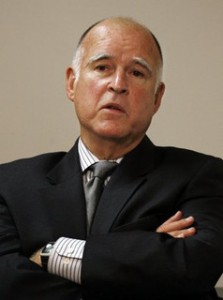One Year Into CA Early Release Program: A Lack Of Confidence
April marked the one year anniversary since California Governor Jerry Brown signed a bill that made prisoner early release program a reality. The California Supreme Court ordered California prisons to reduce overcrowding of inmates by 33,000. Instead of complying with the number 33,000, Jerry Brown, decided to take a step further and release nearly 60,000 prisoners. In October of 2011, prisoners whose most recent crime was low risk, regardless of their criminal and violent rap sheet, began to be released without any justice to the victimized community.
The realignment program was directed to designated low-risk offenders. However, the definition of low-risk that legislators created included offenders convicted of carrying weapons in schools, committing hate crimes, selling guns to gang members, arson, theft, and the list goes on. This has been a dramatic change to the system of corrections, and it is traumatic to the victims of crime.
As a child, I attended a primary school in the city of La Puente. Our family had the misfortune of living next to an alley, where it was common for the Sheriff’s helicopter to shine its light into the alleys in search of gang members fleeing and hiding between the houses.
I grew up in a community where children instinctively threw themselves on the ground when gunfire sounded. This was learned before they could read and write. Shootings, drug trafficking, gang fights, sexual assault and murder were some of the activities with which we dealt in our community.
When some of the gang members were arrested by the police, our community gave a sigh of relief. I always hoped that gangsters were gone forever.
Last April, the County of Los Angeles made history by placing a restraining order that prohibits more than 1,300 gang members from participating in certain activities in La Puente, Bassett, Valinda and portions of City of Industry. By creating a 6 mile security zone, those areas were protected from over thousand gang members of Puente 13, Bassett Grande and their rivals.
When La Puente was triumphing against crime, the state gave them a black eye against their efforts. I was deeply saddened to read a commentary from La Puente mayor John Solis noting that since the state’s realignment program went into effect last October, in La Puente, sexual assaults increased by 300 percent and assaults with firearms and stabbings have also increased by nearly 150 percent throughout the city.
A year since California Governor Brown made prisoner realignment a reality, and while lawmakers gathered behind the walls of the Capitol, what will they tell our community when these criminals are arrested, and then released a day or a week or two later? How can our community have confidence in our political system when they cannot meet its top priority, keeping our streets and schools safe?
Miryam Mora Barajas is the deputy finance director & spokesperson for the California Republican Party. She was executive director at Donate Life California, the largest organ donor registry in the nation. She served as the Western Regional Coalition Director for John McCain’s presidential campaign. She still works as a consultant to start-up non-profits and serves as a political media analyst.
[Photo by Freedom To Marry]

